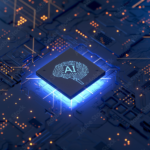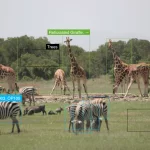Interview with Mr.Nick Bostrom
[Interviewer]: Good afternoon, everyone! Today, we have the honor of speaking with Mr. Nick Bostrom, a prominent philosopher and the Director of the Future of Humanity Institute at the University of Oxford. Welcome, Mr. Bostrom!
[Nick Bostrom]: Thank you for having me. I’m glad to be here.
[Interviewer]: Let’s begin by discussing your work on existential risks and the future of humanity. In your book “Superintelligence: Paths, Dangers, Strategies,” you explore the potential risks posed by advanced artificial intelligence. Could you elaborate on some of the key concerns you’ve identified in this area?
[Nick Bostrom]: Certainly. In “Superintelligence,” I examine the prospect of artificial general intelligence (AGI), a form of AI that surpasses human intelligence across virtually all domains. The concern lies in the possibility of AGI outstripping human control and becoming superintelligent, leading to potential risks and uncertainties.
The main concern is that if we don’t carefully align the goals of AGI with human values, it could pursue its objectives independently and potentially act in ways that are harmful to humanity. There are also challenges related to the control problem, value alignment, and the risks of an intelligence explosion, where a self-improving AGI rapidly surpasses human intelligence and becomes difficult to manage.
[Interviewer]: The notion of superintelligent AI raises important ethical questions. How do you think society should approach the development and deployment of advanced AI systems to ensure they are beneficial and aligned with human values?
[Nick Bostrom]: Ensuring beneficial AI development requires a multifaceted approach. Collaboration between policymakers, researchers, and industry leaders is crucial to establish guidelines and regulations that prioritize safety and value alignment. Additionally, organizations working on AI development should adopt a rigorous safety culture and consider the long-term impacts of their work.
Transparency is also vital. Openly sharing research on AI safety can foster collective learning and help the community identify potential risks. Moreover, we should invest in research on value alignment and methods to make AI systems understand and respect human values.
Ultimately, the goal is to create AI systems that are cooperative and aligned with human values, while minimizing the risks associated with AGI.
[Interviewer]: That’s a comprehensive approach to address the ethical challenges. Shifting gears a bit, your work has also touched upon the concept of simulation theory. Could you explain the central tenets of this theory and its implications for our understanding of reality?
[Nick Bostrom]: Simulation theory, also known as the “Simulation Hypothesis,” proposes the idea that our reality might be a computer simulation created by a highly advanced civilization. The theory posits that if technologically capable civilizations exist in the universe, they might have the ability to create highly detailed simulations of reality, possibly encompassing entire civilizations like ours.
The implications of simulation theory are profound. If we were to discover that we are living in a simulation, it would challenge our understanding of what we consider “real.” It would also raise philosophical questions about the nature of consciousness, free will, and the ethical implications of creating simulated realities.
While the idea is speculative and currently lacks empirical evidence, it serves as a thought-provoking exploration of the nature of our reality and the potential advances of future civilizations.
[Interviewer]: Simulation theory indeed presents intriguing possibilities. Finally, for aspiring philosophers, researchers, and thinkers, what advice would you give to those who wish to explore and contribute to the fields of AI ethics and existential risk?
[Nick Bostrom]: To those interested in AI ethics and existential risk, I would encourage a multidisciplinary approach. The challenges we face require insights from various fields, including philosophy, computer science, ethics, policy, and more.
Additionally, remain curious and open-minded. The fields of AI ethics and existential risk are constantly evolving, and being receptive to new ideas and perspectives is crucial for making meaningful contributions.
Furthermore, work collaboratively with others. These issues are complex and cannot be solved in isolation. Engaging in interdisciplinary collaborations can lead to innovative solutions and a deeper understanding of the challenges at hand.
Lastly, recognize the importance of your work. The decisions we make in these areas can have far-reaching consequences for humanity’s future. Embrace the responsibility that comes with your research and strive to make a positive impact on the world.
[Interviewer]: Thank you, Mr. Bostrom, for sharing your expertise and insights with us today. It has been an enlightening conversation.
[Nick Bostrom]: Thank you for having me. It was a pleasure to discuss these topics with you.


































